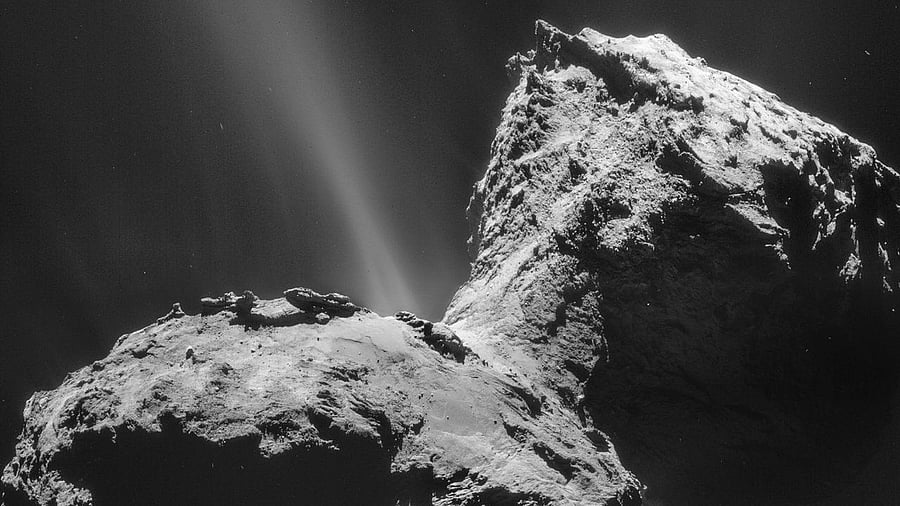
Comet 67P/Churyumov-Gerasimenko, belonging to the Jupiter family.
Credit: https://science.nasa.gov
The Earth, famously referred to as the "pale blue dot" by renowned astronomer and planetary scientist Carl Sagan, is the only planet in our solar system known to harbour life. One of the primary reasons for this is the existence of water in a habitable state - which, rather poetically, explains Sagan's choice of nickname for our only home.
Among the myriad wonders of the cosmos, the Earth, and the presence of water in it is certainly one of the most significant. Now, in a groundbreaking research, scientists have found water on Comet 67P/Churyumov-Gerasimenko, which belongs to the Jupiter family, according to a report by Interesting Engineering. The molecular signature of the water found in the comet is very much identical to that of the water present in oceans of the Earth.
This finding potentially disproves earlier research that cast doubt on the connection between Jupiter family comets like Comet 67P/Churyumov-Gerasimenko and the water supply to our planet.
As we all know, life on Earth depends on water. Much of that original water would have been destroyed by the strong heat from the early Sun, but some of it probably came from the gas, dust, and that formed our planet some 4.6 billion years ago.
Previous investigations of comets in the Jupiter family showed a remarkable correlation between the water present there and the water of the Earth's oceans, based on similarity in their molecular signature.
This molecular signature is nothing but the ratio of deuterium (D) to ordinary hydrogen (H) in water, which provides valuable information on the location of formation of these celestial bodies in the solar system.
The concentration of deuterium, a heavier type of hydrogen, changes with an object's distance from the Sun.
Compared to asteroids, which develop closer to the Sun, comets, which form in the colder outer solar system, typically have higher quantities of deuterium.
Water vapor observations in a number of comets in the Jupiter family over the past 20 years have shown deuterium levels comparable to those in Earth's water, pointing to a possible link in the emergence of water on Earth.
The deuterium abundance in Comet 67P was reassessed in a recent study conducted by Kathleen Mandt, a planetary scientist at NASA's Goddard Space Flight Center. "It was starting to look like these comets played a major role in delivering water to Earth," Mandt said, speaking about the results of the research.
